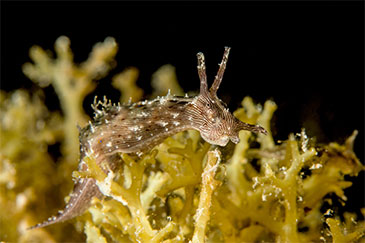Scientists from the Universities of Bristol and Exeter and the École Pratique des Hautes Études (EPHE) CRIOBE in France have long understood that artificial marine noise can affect the ecology of marine life, but they now understand that propeller noise from boats can also affect change in the life cycle of one of the most important reef inhabitants. Lead author Sophie Nedelec, a PhD researcher at the University of Bristol and EPHE had this to offer: “Traffic noise is now one of the most widespread global pollutants. If the reproductive output of vulnerable species is reduced, we could be changing communities and losing vital ecological functions. This species is particularly important because it eats a toxic alga that affects recruitment of fish to coral reefs.”
Researchers found that when exposed to anthropogenic noises throughout gestation, some of the Stylocheilus striates eggs studied for this experiment were found to be underdeveloped and in some cases actually perished as a result. Co-author, Dr Steve Simpson, a marine biologist and senior lecturer at the University of Exeter, said: “Boat noise may cause stress or physically disrupt cells during development, affecting chances of survival. Since one in five people in the world rely on marine animals as a major source of protein, regulating traffic noise in important fisheries areas could help marine communities and the people that depend on them.” Read more here.










0 Comments